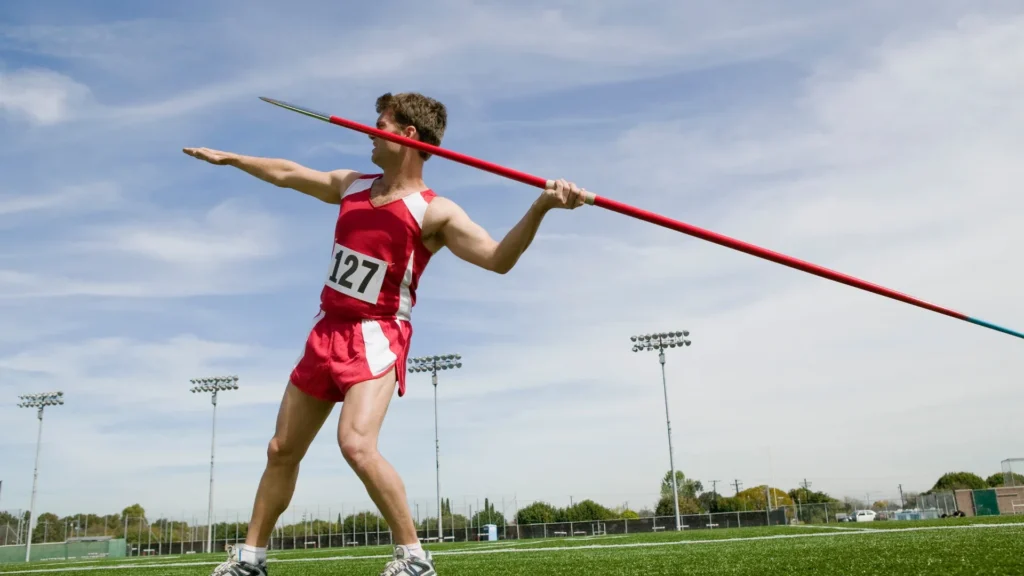
Ever wondered what it takes to be a hybrid athlete?
Think of someone who excels in multiple sports or disciplines.
It’s not just about physical training; the mental game is huge.
I’ve also written an article that breaks down a hybrid athlete training program if you want to check out exact training details.
But today, let’s dive into the mental side of things.
Psychological Demands of Hybrid Training
Cognitive Load
Being a hybrid athlete means juggling various skills.
This can be mentally exhausting.
You need to balance different training regimes.
It’s a lot for your brain.
Staying organized and focused helps manage this load.
It’s not just about physical endurance but also mental agility.
The brain works overtime to switch between different sports, each with its unique techniques and strategies.
Managing this effectively is key for any hybrid athlete.
Mental Resilience
Hybrid athletes face physical and mental fatigue.
It’s normal!
Building mental resilience is crucial.
Learn to bounce back from setbacks and injuries.
It’s part of the journey!
Hybrid athletes often deal with more injuries due to diverse physical demands.
Overcoming these setbacks requires a strong mental framework.
Developing coping mechanisms, like positive self-talk and mental conditioning, is essential.
Motivation and Goal Setting
Staying motivated can be tough.
Find what drives you!
Is it the love of the sport or personal growth?
Set realistic and flexible goals.
Hybrid athletes need to adapt constantly.
Each sport might have different peak seasons, requiring shifts in focus and intensity.
Balancing these without losing motivation is challenging.
Break down larger goals into smaller, achievable milestones to maintain momentum.
Stress and Anxiety Management
Hybrid athletes often face higher stress levels.
There’s pressure to excel in multiple areas.
Learning to manage stress is critical.
Techniques like deep breathing, meditation, and progressive muscle relaxation can help.
Regular practice of these techniques can reduce anxiety levels, helping hybrid athletes stay calm and focused.
Time Pressure
Time management is a big challenge for hybrid athletes.
Balancing training schedules, competitions, and rest is tricky.
Effective time management strategies are essential.
Prioritize tasks, create a flexible schedule, and stick to it.
Use tools like calendars and apps to keep track of your routines.
Concentration and Focus
Switching between different sports requires immense concentration.
Hybrid athletes must sharpen their focus to excel in each sport.
Techniques like mindfulness and concentration drills can enhance focus.
Staying present and fully engaged in each training session boosts performance.
Dealing with Burnout
Burnout is a real risk for hybrid athletes.
The constant physical and mental demands can take a toll.
Recognize the signs early: like chronic fatigue, lack of motivation, and irritability.
Implement strategies to prevent burnout!
This includes regular rest days, mental breaks, and engaging in non-sporting activities to relax and recharge.
Adaptability
Hybrid athletes need to be highly adaptable.
Different sports may require varying techniques, strategies, and mindsets.
Developing adaptability helps in seamlessly transitioning between sports.
Practice flexibility in training routines and be open to adjusting your approach based on what each sport demands.
Emotional Regulation
Hybrid athletes often experience a rollercoaster of emotions.
From the highs of winning to the lows of injuries or losses.
Emotional regulation is key.
Techniques like journaling, talking to a sports psychologist, and practicing gratitude can help manage emotions effectively.
Staying emotionally balanced helps in maintaining overall performance.
Self-Confidence
Confidence is crucial for hybrid athletes!
Balancing multiple sports can sometimes shake self-belief.
Work on building and maintaining self-confidence.
Positive affirmations, reflecting on past successes, and setting achievable goals can boost confidence levels.
A confident hybrid athlete is more likely to perform well across different sports.
Social Support
Having a strong support system is vital. Family, friends, coaches, and teammates provide essential encouragement and assistance. Hybrid athletes should actively seek and nurture these relationships. Social support helps in managing stress, staying motivated, and navigating the ups and downs of being a hybrid athlete.
By understanding and addressing these psychological demands, hybrid athletes can enhance their performance and maintain a healthy balance in their sporting and personal lives.

Identity and Self-Concept
Dual-Sport Identity
As a hybrid athlete, you navigate multiple identities.
It can be confusing.
But it also boosts self-esteem!
Embrace both sides of your athletic persona.
One day, you’re a marathon runner; the next, you’re a powerlifter.
This dual identity can enrich your sense of self.
Embracing this multifaceted identity can also lead to personal growth. It’s about finding harmony between your different athletic roles.
Balancing Multiple Identities
Balancing multiple identities involves recognizing and valuing each part of your athletic self.
Hybrid athletes often feel torn between their sports.
It’s important to integrate these identities harmoniously.
Acknowledge that each sport contributes to your overall athletic persona.
This integration fosters a more cohesive self-concept and prevents internal conflicts.
Impact on Self-Esteem and Confidence
Having multiple athletic identities can boost self-esteem and confidence.
You gain confidence from excelling in diverse areas.
Each achievement reinforces your belief in your abilities.
This can make you more resilient and adaptable.
Hybrid athletes often draw strength from their varied experiences, enhancing their overall confidence.
Navigating Role Confusion
Role confusion is common among hybrid athletes.
You might feel unsure about where you truly belong.
This confusion can impact performance and mental well-being.
It’s crucial to develop a clear understanding of your roles in each sport.
This clarity helps in setting specific goals and reduces anxiety related to identity confusion.
Social Perceptions and Expectations
People expect a lot from hybrid athletes.
There’s a lot of pressure!
Manage it by setting your own expectations.
Don’t let others dictate your worth!
It’s easy to get caught up in what coaches, teammates, or fans expect.
Stay true to your personal goals and values.
Your journey as a hybrid athlete should be self-directed.
Hybrid athletes often face public scrutiny.
There’s a constant need to prove oneself in multiple domains.
This can be stressful.
Learn to manage public pressures by focusing on your personal progress rather than public approval.
Self-imposed pressures can also be intense.
Hybrid athletes tend to set high standards for themselves.
It’s important to set realistic, achievable goals to prevent burnout and frustration.
Finding a community that understands and supports your hybrid identity is essential!
This community could be fellow hybrid athletes, supportive coaches, or understanding friends and family.
Being part of a community helps in navigating the unique challenges of being a hybrid athlete.
It provides a sense of belonging and reduces feelings of isolation.
Creating a strong personal narrative helps in solidifying your hybrid athlete identity.
This narrative should encompass your journey, achievements, and challenges across all your sports.
A cohesive personal story boosts self-understanding and helps you communicate your identity to others.
It’s a powerful tool for self-affirmation and external recognition.
Hybrid athletes must embrace flexibility in their self-concept.
Your identity as an athlete will evolve as you grow and change.
Be open to this evolution!
Flexibility allows you to adapt to new challenges and opportunities without losing your sense of self.
It’s about maintaining a core identity while being open to change.
Seeking role models and mentors can greatly influence your self-concept.
Look up to other hybrid athletes who have successfully navigated their dual roles.
Mentors can provide guidance, support, and insights based on their experiences.
They can help you develop a strong, positive self-concept as a hybrid athlete.
Celebrate your achievements in both sports equally.
Each success contributes to your overall identity.
This celebration reinforces your dual identity and boosts your self-esteem.
It’s a reminder that you’re capable of excelling in multiple domains.
Recognize and honor your efforts and accomplishments in all areas.
Understanding and nurturing your identity and self-concept is crucial for hybrid athletes.
It helps in maintaining mental well-being and achieving peak performance across different sports.
Mental Strategies for Success
Mental Toughness
Adversity builds mental toughness.
Embrace challenges!
Use setbacks to grow stronger.
Hybrid athletes need this grit to succeed!
You’ll face ups and downs in each sport, and your ability to push through tough times will define your success.
Developing a growth mindset (viewing challenges as opportunities to improve), can significantly enhance your mental toughness.
Visualization and Mental Rehearsal
Visualization is powerful!
Imagine yourself succeeding in both sports.
It’s like a mental workout.
Hybrid athletes benefit greatly from this technique quite a lot.
Create vivid, detailed images of yourself performing well.
This practice can enhance your physical performance by strengthening neural pathways associated with each sport.
Regular mental rehearsal builds confidence and prepares you for actual competition scenarios.
Goal Setting and Achievement
Set SMART goals (Specific, Measurable, Achievable, Relevant, Time-bound)!
Hybrid athletes must set clear, realistic goals for each sport.
Break these down into smaller, actionable steps.
Celebrate small victories along the way.
This approach keeps you motivated and provides a sense of accomplishment.
Revisiting and adjusting goals regularly ensures they remain aligned with your progress and aspirations.
Mindfulness and Relaxation Techniques
Mindfulness prevents burnout!
It keeps you present and focused.
Hybrid athletes should practice relaxation strategies regularly.
Techniques like deep breathing, progressive muscle relaxation, and guided imagery can help.
These practices reduce stress, enhance concentration, and improve overall mental well-being.
Incorporate mindfulness into your daily routine to maintain a balanced, calm mindset.
Positive Self-Talk
Positive self-talk can transform your mindset!
Replace negative thoughts with affirming, empowering statements.
Hybrid athletes benefit from maintaining a positive inner dialogue.
Practice phrases like, “I am capable,” or “I can handle this challenge.” Over time, this positive self-talk can boost your confidence and resilience.
Building a Routine
Establish a consistent mental training routine!
Just as you train physically, dedicate time to mental exercises.
Include activities like meditation, visualization, and goal-setting.
A structured routine helps in developing and maintaining mental strategies.
Consistency is key for hybrid athletes to reinforce these practices.
Emotional Regulation
Emotional regulation is crucial for hybrid athletes.
Learn to manage your emotions effectively.
Techniques like journaling, mindfulness, and cognitive-behavioral strategies can help.
Understand your emotional triggers and develop coping mechanisms.
This ability to stay calm and composed under pressure enhances your performance across all sports.
Seeking Professional Support
Don’t hesitate to seek help from sports psychologists or mental coaches.
They provide valuable insights and strategies tailored to your needs.
Professional support can help hybrid athletes navigate complex mental challenges, offering personalized guidance to enhance your mental game.
Social Support Systems
Build a strong support network.
Surround yourself with positive influences, like coaches, teammates, family, and friends.
Their encouragement and feedback are vital!
A solid support system provides emotional and psychological backing, helping you stay motivated and resilient.
Stress Management Techniques
Hybrid athletes often deal with high stress levels.
Incorporate stress management techniques into your routine.
Practices like yoga, meditation, and tai chi can be beneficial.
Regular exercise, adequate sleep, and a balanced diet also play crucial roles in managing stress.
Find what works best for you and stick to it!
Developing a Pre-Performance Routine
A pre-performance routine can boost confidence and readiness.
Create a consistent routine before practices and competitions.
This might include visualization, listening to music, or specific warm-up exercises.
A reliable routine helps hybrid athletes get into the right mental state, enhancing focus and performance.
Building Resilience Through Reflection
Reflect regularly on your experiences.
Analyze what worked well and what didn’t.
Hybrid athletes grow from their experiences by understanding their strengths and areas for improvement.
Keep a training journal to document your progress, setbacks, and reflections.
This practice fosters continuous learning and resilience.
Integrating Technology
Use technology to your advantage!
Apps and wearable devices can track your mental training progress.
Tools for meditation, visualization, and stress management are readily available.
Hybrid athletes can leverage these technologies to stay on top of their mental game, ensuring consistent practice and improvement.
By implementing these mental strategies, hybrid athletes can enhance their overall performance and maintain a healthy, balanced approach to their training and competitions.

Balancing Training and Recovery
Time Management
Hybrid athletes must manage their time well.
Prioritize your training schedules!
Effective time management is key to success.
Create a balanced schedule that allocates time for each sport, ensuring you dedicate enough time to skill development and conditioning.
Use tools like calendars, apps, and planners to stay organized.
Regularly review and adjust your schedule to accommodate changes in training intensity or competition dates.
Importance of Recovery
Recovery is as important as training.
Use physical recovery methods like stretching, massage, and foam rolling to keep your body in top shape.
Proper recovery prevents injuries and enhances performance.
Hybrid athletes often push their bodies to the limit, making recovery time crucial.
Incorporate rest days into your schedule to allow muscles to repair and grow.
Mental Recovery and Its Significance
Mental recovery is just as important as physical recovery!
Engage in activities that relax your mind and reduce stress.
This can include reading, listening to music, or spending time with loved ones.
Mental recovery helps hybrid athletes maintain focus and prevent burnout.
Techniques like meditation, mindfulness, and even light recreational activities can aid in mental relaxation.
Avoiding Overtraining
Overtraining is a risk!
Recognize the signs early, like chronic fatigue, decreased performance, and mood swings.
Hybrid athletes need to implement preventive measures.
Monitor your training load and ensure it’s balanced with adequate recovery time.
Listen to your body!
If you’re feeling constantly exhausted or unmotivated, it might be time to scale back and rest.
Sleep Quality
Sleep is a critical component of recovery.
Hybrid athletes should prioritize getting 7-9 hours of quality sleep each night.
Sleep aids in muscle recovery, cognitive function, and overall health.
Establish a regular sleep routine by going to bed and waking up at the same times each day.
Create a sleep-friendly environment, cool, dark, and quiet, to improve sleep quality.
Nutrition and Hydration
Proper nutrition fuels your body and aids in recovery.
Eat a balanced diet rich in protein, healthy fats, and carbohydrates.
Hybrid athletes need to consume enough calories to support their intensive training regimes.
Hydration is equally important!
Drink plenty of water throughout the day to stay hydrated, especially after intense training sessions.
Cross-Training Benefits
Cross-training can be beneficial for hybrid athletes.
It provides a break from your main sports while keeping you active.
Cross-training can enhance overall fitness, reduce the risk of injury, and improve mental well-being.
It’s a great way to maintain variety in your training routine and keep motivation high.
Periodization and Rest Cycles
Implement periodization in your training.
This means cycling through different phases of training intensity and volume.
Hybrid athletes benefit from structured rest cycles within their training programs.
Periodization helps in avoiding overtraining and ensures peak performance during competitions.
Plan for high-intensity phases followed by periods of lower intensity and rest.
Monitoring and Tracking Progress
Keep track of your training and recovery.
Use journals, apps, or wearable technology to monitor your progress.
Tracking helps hybrid athletes understand their bodies better and adjust training loads accordingly.
Regularly review your progress to identify patterns and make informed decisions about training and recovery needs.
Active Recovery Techniques
Incorporate active recovery into your routine.
Activities like light jogging, swimming, or yoga can aid recovery without adding stress to your body.
These low-intensity activities help maintain blood flow, reduce muscle soreness, and improve flexibility.
Active recovery days can keep you moving while allowing your body to recuperate.

Professional Support
Consider seeking professional support for your recovery needs.
Physical therapists, sports nutritionists, and recovery specialists can provide tailored advice and treatments.
Hybrid athletes benefit from expert guidance in optimizing their recovery strategies.
Regular consultations can help address specific issues and enhance overall performance.
Mental Recovery Techniques
Engage in mental recovery techniques such as visualization, meditation, and mindfulness exercises.
These practices help reduce stress and enhance mental clarity.
Hybrid athletes often face mental fatigue due to the demands of multiple sports.
Regular mental recovery exercises can improve focus, decision-making, and overall mental health.
Flexibility and Adaptability
Stay flexible and adaptable in your training and recovery plans.
Hybrid athletes need to adjust their routines based on performance, recovery status, and life events.
Being adaptable ensures you don’t push through when your body needs rest.
Listen to your body and be willing to modify your plans to maintain balance and health.
By effectively balancing training and recovery, hybrid athletes can optimize their performance and maintain long-term health and well-being.
Prioritize both physical and mental recovery to achieve sustained success in multiple sports.
Conclusion
To sum it up, being a hybrid athlete isn’t just about physical prowess.
The mental game is huge!
From managing cognitive load to building mental toughness, it’s a journey.
For those who want more in-depth training and a supportive community, check out the Success Stories Membership.
It’s a fantastic resource for hybrid athletes.
You’ll find like-minded people and get access to top-notch training. Whether you’re just starting or already competing, there’s something for everyone.
Remember, being a hybrid athlete is a unique challenge.
Embrace it!
Train hard, but don’t forget the mental side.
It’s what makes the difference!



